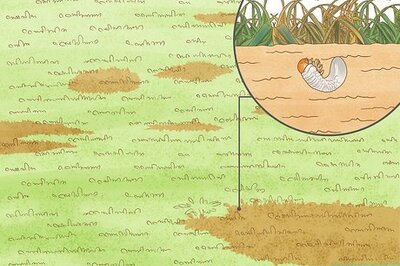
views
CHENNAI: A day after the Union Environment Minister released the Wetland Atlas of India, essentially to inventorise wetlands across the country for conservation, City Express visited the Pallikaranai marshlands and found that neither the Municipal Solid Waste Rules of 2000 nor the Wetlands (Conservation and Management) Rules, 2010 have been implemented by the authorities in true letter and spirit.The burning of unsegregated garbage at the marshland, which was banned by the Municipal Solid Waste (Management and Handling) Rules, 2000, has been revived with renewed vigour.Only this time, the miscreants have chosen a time of the day when most of the local residents are asleep – in the dead of the night.According to V Amaran, an employee at the Indian Oil Corporation outlet abutting the dump yard, the “burning issue” has been a hindrance to him at the workplace. “They start burning the waste in the early morning and sometimes close to midnight. I suffer headaches and irritation in my eyes because of that,” he said.Amaran says that one of his friends also had throat irritation due to the smoke.Things got worse a few days ago and he was admitted to a hospital. "The doctors administered an injection to him and he was back to work two days later," he said.Returning home around 11.30pm one night, Amaran smelt smoke in the air. "I even took a picture on my cell phone, but it was not very clear because of the darkness," he said.Taking a similar stand, tea-stall owner, N. Mohammad, a resident of Pallikaranai for the past seven years, said, “I suffer constantly from breathing problems but I can’t afford to take any treatment.” People living near these dump yards are prone to respiratory infections as well as stomach ailments like gastritis, said Dr.Thiagarajan, who owns a private clinic on Santhome High Road.Jayashree Vencatesan, researcher and Managing Trustee of Care Earth, an organisation that has been working for the restoration of the wetland for the past 10 years, feels that citizens have as much of a responsibility as the Corporation in managing the ecosystem.“We need to look at ways to cut down the quantum of garbage generated to tackle the problem effectively,” she said.At present, the adaptive management plan for the conservation of Pallikaranai proposed by Care Earth is awaiting approval from the Union Environment ministry.The plan encompasses suggestions such as the establishment of a coordinating agency to enable engagement of multiple stakeholders in the marshland, setting-up of a wetland centre to create awareness, drawing of a detailed management plan to conduct feasibility studies on effective disposal of solid waste, water and soil assessments, and, finally, the inclusion of Pallikaranai in the Ramsar Convention, a global environmental treaty, to provide it with international recognition.Referring to the organisation’s systematic efforts to protect the wetland, Jayashree said the use of scientific data in a well-organised manner is helping them sustain their campaign.Under the National Wetlands Conservation Programme of India, 115 wetlands were identified for conservation. Pallikaranai is one of the three wetlands in Tamil Nadu enlisted in the programme, other than Point Calimer and Kaliveli.



















Comments
0 comment